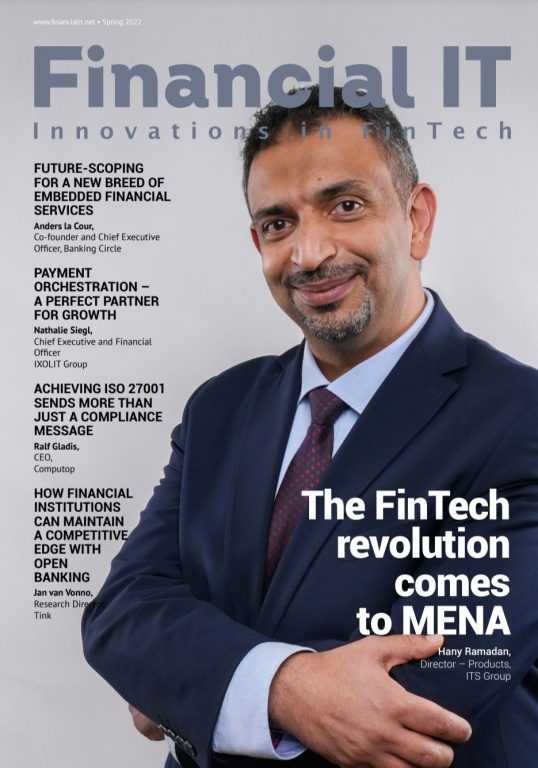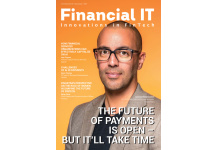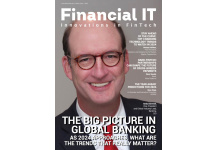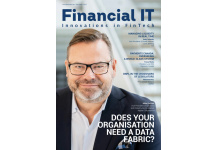Financial IT Spring Issue 2022

- 03 Mar, 2022 09:00 am
Questions of security, opportunity and diversity
This Editor-in-Chief’s letter is being written as Russia’s armed forces are mounting what appears to be a full-scale invasion of Ukraine – a truly appalling outcome after months of mounting geo-political tension.
It remains to be seen what is (or will be) the role of cyber-warfare in this conflict. This edition of Financial IT is dedicated in no small part to how technology can boost security in financial services.
This is because security – or the lack of it – is a massive challenge for financial institutions and the technology companies with whom they work to find innovative solutions.
As one of our contributors points out, the amount of money lost annually to fraud is equivalent to almost $5.4 trillion ($5,400 billion) or about 6.4% of global GDP .
Fraud is not the only problem. In the first six months of 2021, the banking industry suffered a 1,318% rise in ransomware demands relative to the corresponding period of 2020. The average cost of each data breach last year was $5.72 million.
Opportunity from insecurity
The silver lining to this particular cloud is that financial services companies are taking steps to address the problem.
As one of our contributors explains, some 53% of business technology leaders in the UK are already using multi-cloud (hybrid cloud) solutions having moved at least one business application to a new IT environment. The same research found that 82% of survey respondents anticipate that their organisations will be using multi-cloud solutions within the next three years, if they are not doing so already.
The need for greater security is the most important reason for the move to multi-clouds, being highlighted by 41% of the respondents.
Security is essential to trust, which is essential to ongoing and mutually beneficial relationships between financial institutions and customers. One of our contributors points out that only 18% of financial companies believe that their credit risk models are accurate at least 75% of the time.
A key message from this edition of Financial IT is that levels of trust – and security – will continue to increase.
The reason for this can be summarised in just two words: Open Banking. This is because that the Application Programme Interfaces (APIs) that are at the heart of Open Banking exist to exchange information between financial services and fintechs in a reliably secure way.
APIs are becoming more important – because banks (and other financial companies) can see the advantages of Open Banking. One analysis mentioned in this edition of Financial IT found that 90% of banks leverage APIs to develop relationships with existing customers. Meanwhile, 75% of banks see APIs as key to obtaining new business.
Nearly half of banks in Europe have been increasing their Open Banking budgets since the introduction of the second Payments Services Directive (PSD2) in the European Union.
The details of how these banks are embracing Open Banking varies from case to case. However, as one of our contributors explains, there are four major models that can be followed.
How diversity helps
As usual, the range of topics covered in Financial IT highlight how concepts, problems and solutions are inextricably linked. Trust depends on security and reliable analysis. Open Banking, artificial intelligence (AI), link analysis, blockchain and all the other technologies that are discussed go hand in hand to generate better outcomes for institutions and customers.
In this edition, we consider who are the people – or, more precisely, who are the women - who are driving the innovation and change.
The stories behind the 30 women leaders whom we profile are all different. They illustrate the diversity that exists at high levels in many institutions and fintechs.
Individually, they have made huge contributions to one or more organisations. Collectively, the impact that they have had is greater than the sum of the parts.
At a time of conflict in Eastern Europe, and heightened geo-political tensions in the rest of the world, that is a huge reason for optimism.
Andrew Hutchings
Editor-in-Chief,
Financial IT





















